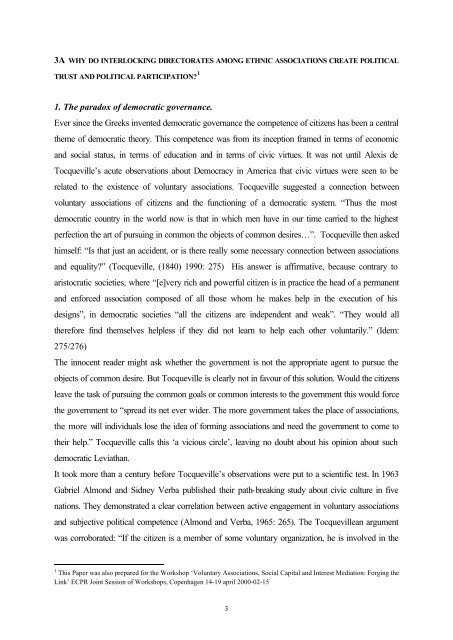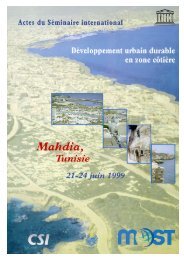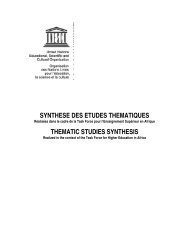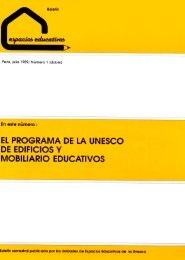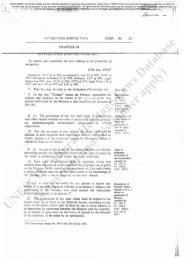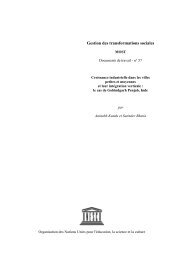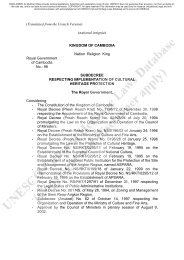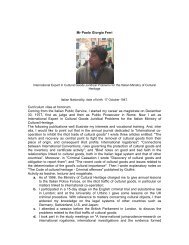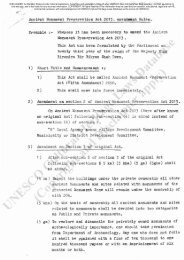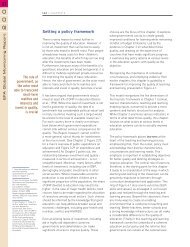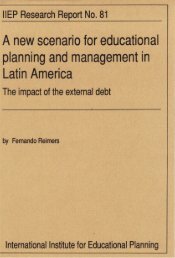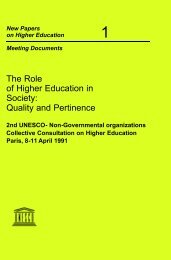MPMC Working Paper 3 - Unesco
MPMC Working Paper 3 - Unesco
MPMC Working Paper 3 - Unesco
Create successful ePaper yourself
Turn your PDF publications into a flip-book with our unique Google optimized e-Paper software.
3A WHY DO INTERLOCKING DIRECTORATES AMONG ETHNIC ASSOCIATIONS CREATE POLITICAL<br />
TRUST AND POLITICAL PARTICIPATION? 1<br />
1. The paradox of democratic governance.<br />
Ever since the Greeks invented democratic governance the competence of citizens has been a central<br />
theme of democratic theory. This competence was from its inception framed in terms of economic<br />
and social status, in terms of education and in terms of civic virtues. It was not until Alexis de<br />
Tocqueville’s acute observations about Democracy in America that civic virtues were seen to be<br />
related to the existence of voluntary associations. Tocqueville suggested a connection between<br />
voluntary associations of citizens and the functioning of a democratic system. “Thus the most<br />
democratic country in the world now is that in which men have in our time carried to the highest<br />
perfection the art of pursuing in common the objects of common desires…”. Tocqueville then asked<br />
himself: “Is that just an accident, or is there really some necessary connection between associations<br />
and equality?” (Tocqueville, (1840) 1990: 275) His answer is affirmative, because contrary to<br />
aristocratic societies, where “[e]very rich and powerful citizen is in practice the head of a permanent<br />
and enforced association composed of all those whom he makes help in the execution of his<br />
designs”, in democratic societies “all the citizens are independent and weak”. “They would all<br />
therefore find themselves helpless if they did not learn to help each other voluntarily.” (Idem:<br />
275/276)<br />
The innocent reader might ask whether the government is not the appropriate agent to pursue the<br />
objects of common desire. But Tocqueville is clearly not in favour of this solution. Would the citizens<br />
leave the task of pursuing the common goals or common interests to the government this would force<br />
the government to “spread its net ever wider. The more government takes the place of associations,<br />
the more will individuals lose the idea of forming associations and need the government to come to<br />
their help.” Tocqueville calls this ‘a vicious circle’, leaving no doubt about his opinion about such<br />
democratic Leviathan.<br />
It took more than a century before Tocqueville’s observations were put to a scientific test. In 1963<br />
Gabriel Almond and Sidney Verba published their path-breaking study about civic culture in five<br />
nations. They demonstrated a clear correlation between active engagement in voluntary associations<br />
and subjective political competence (Almond and Verba, 1965: 265). The Tocquevillean argument<br />
was corroborated: “If the citizen is a member of some voluntary organization, he is involved in the<br />
1 This <strong>Paper</strong> was also prepared for the Workshop ‘Voluntary Associations, Social Capital and Interest Mediation: Forging the<br />
Link’ ECPR Joint Session of Workshops, Copenhagen 14-19 april 2000-02-15<br />
3


